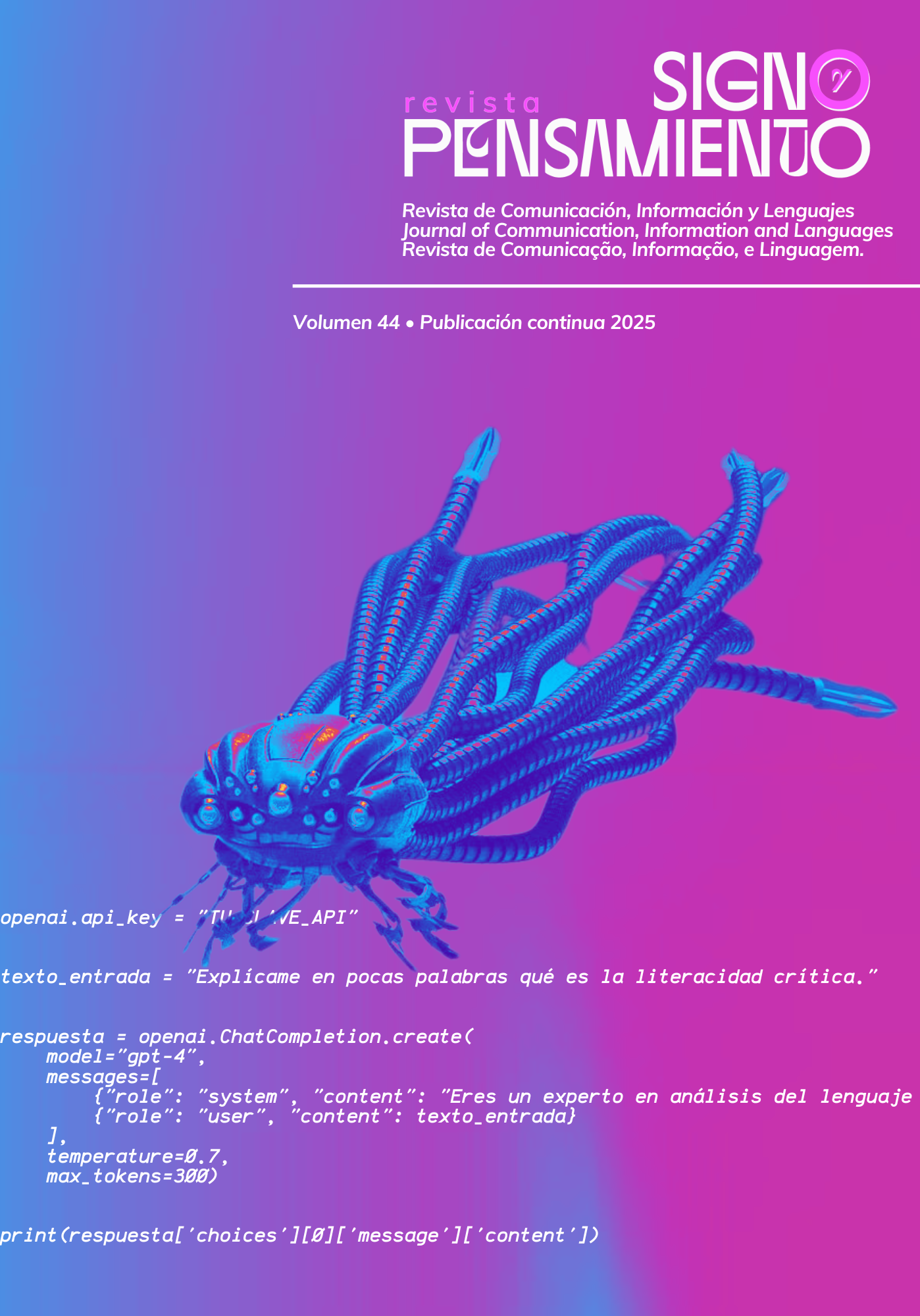Resumo
O artigo propõe um caminho conceitual crítico para a construção de referentes materiais para uma datificação testemunhal da violência. Os dados são concebidos como um signo e como um registro. A semiose além do signo simbólico contribui para a compreensão da primeira dimensão, e a violência é pensada como um desdobramento semiótico que administra o medo do mal-entendido. As tensões entre a experiência e o registro da experiência são abordadas e a qualidade do registro para produzir efeitos de verdade é problematizada para que se possa pensar em sua dimensão política. A partir de noções de testemunho e narração de violência traumática, são abordadas as implicações éticas da construção da voz de vítimas e sobreviventes de violência, bem como as características dos registros e linguagens usados para articulá-los.
- Acosta López, M. del R. (2017). Hacia una gramática del silencio: Benjamin y Felman. En Los silencios de la guerra (C. de Gamboa & M. V. Uribe, Eds.; Primera edición). Editorial Universidad del Rosario.
- Andrade, M. M. (2015). Women Writing for Other Women in Colombia’s Current Armed Conflict. CLCWeb: Comparative Literature and Culture, 17(3).
- Bataille, G. (2008). El erotismo (1a ed). Tusquets.
- Chudý, T., & Müller, R. (2024). Intermediality, Semiotics, and Media Theory. En J. Bruhn, A. L.-V. Azcárate, & M. De Paiva Vieira (Eds.), The Palgrave Handbook of Intermediality (pp. 253–284). Springer International Publishing. https://doi.org/10.1007/978-3-031-28322-2_18
- de Man, P. (1991). La autobiografía como desfiguración. Suplemento Anthropos, 29.
- Felman, S. (2017). El silencio de Benjamin. En Los silencios de la guerra (C. de Gamboa & M. V. Uribe, Eds.; Primera edición). Editorial Universidad del Rosario.
- Informe Final de la comisión de la Verdad. (2022). Cuando los pájaros no cantaban. Historias del conflicto armado en Colombia. Volumen testimonial.
- Kitchin, R. (2022). The data revolution: A critical analysis of big data, open data & data infrastructures (Second edition). Sage Publications.
- Kitchin, R., & Lauriault, T. P. (2014). Towards critical data studies: Charting and unpacking data assemblages and their work. The Programmable City Working Paper 2.
- Kohn, E. (2021). Cómo piensan los bosques: Hacia una antropología más allá de lo humano (M. Cuéllar Gempeler & B. A. Sánchez, Trads.; 1ra. edición). Abya-Yala.
- Mejias, U. A., & Couldry, N. (2019). Datafication. Internet Policy Review, 8(4). https://doi.org/10.14763/2019.4.1428
- Mejías, U., & Couldry, N. (2019). Colonialismo de datos: Repensando la relación de los datos masivos con el sujeto contemporáneo. Virtualis, 10(18), Article 18. https://doi.org/10.2123/virtualis.v10i18.289
- Milan, S., & Treré, E. (2019). Big Data from the South(s): Beyond Data Universalism. Television & New Media, 20(4), 319–335. https://doi.org/10.1177/1527476419837739
- Orozco, G. (1987). Televisión y producción de significados (tres ensayos). Universidad de Guadalajara y AMIC.
- Peirce, C. S. (1992). The essential Peirce: Selected philosophical writings. Indiana University Press.
- Ramos-Martín, J. (2022). Capitalismo informacional desde el Sur. Fetichismo de la información y materialidades de la colonialidad de los datos. Revista Latinoamericana Estudios de la Paz y el Conflicto, 3(6), 58–68. https://doi.org/10.5377/rlpc.v3i6.14051
- Reguillo, R. (2011). La narcomáquina y el trabajo de la violencia: Apuntes para su decodificación. Hemispheric Institute, Dossier. https://hemisphericinstitute.org/es/emisferica-82/reguillo5.html
- Ricaurte, P. (2019). Data Epistemologies, The Coloniality of Power, and Resistance. Television & New Media, 20(4), 350–365. https://doi.org/10.1177/1527476419831640
- Rouvroy, A., & Berns, T. (2018). *Gobernabilidad algorítmica y perspectivas de emancipación: ¿lo dispar como condición de individuación mediante la relación? *http://repositorio.flacsoandes.edu.ec/handle/10469/15424
- Uribe, M. V., & Parrini, R. (2020). Introducción. Montajes y fantasmas. En La violencia y su sombra. Aproximaciones desde Colombia y México. Universidad del Rosario y Universidad Autónoma Metropolitana.
- Van Manen, M. (2016). Phenomenology of practice: Meaning-giving methods in phenomenological research and writing. Routledge, Taylor & Francis Group.
- Yeung, K. (2018). Algorithmic regulation: A critical interrogation. Regulation & Governance, 12(4), 505–523. https://doi.org/10.1111/rego.12158

Este trabalho está licenciado sob uma licença Creative Commons Attribution 4.0 International License.
Copyright (c) 2025 Víctor Hugo Ábrego Molina


